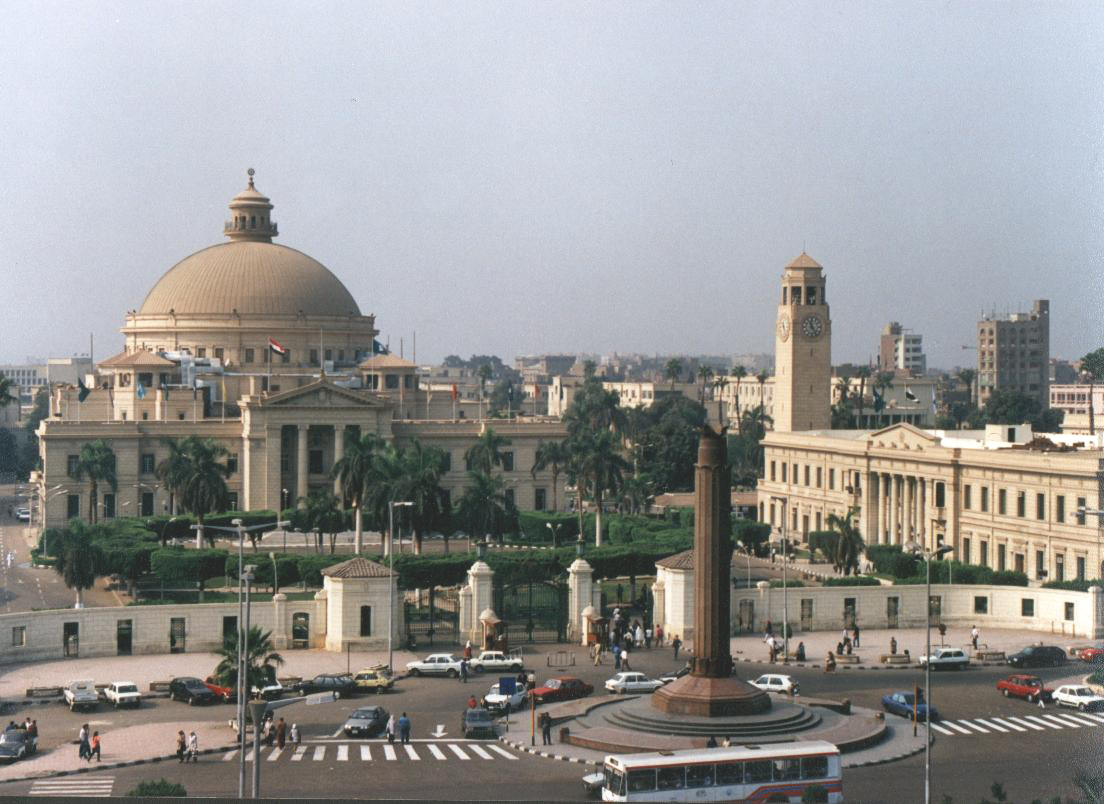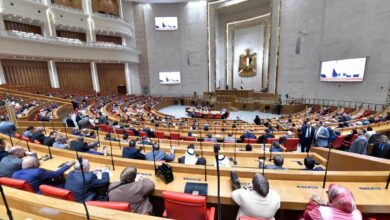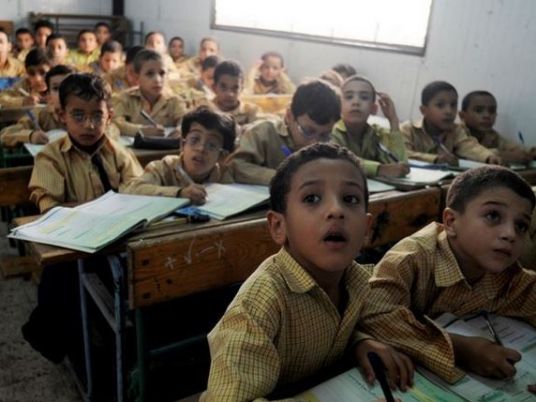When Egyptian schoolchildren returned to their classrooms after the mid-year break this week, they faced far bigger challenges than simply resuming an educational year already disrupted by frequent swine flu-related closures.
Even during normal times, Egypt’s creaking, overburdened educational system has faced steady criticism as one of the main factors holding the country back from its stated ambition of truly competing in the global economy.
“We have moved from the industrial age to the information age. The elements of education that were suitable for the industrial age are no longer suitable,” said Souheir Eldefrawy Elmasry, creator of the Cultural Education for the Child and Family Foundation, an NGO that trains Education Ministry teachers and youth-center staffers.
The country’s economic architects can rightly cite a healthy growth rate, steady foreign investment and Egypt’s resiliency in the face of the global financial meltdown as indicators of progress. But critics point to the state of the educational system as the main reason why the country has fallen behind its former economic equals.
“That’s the paramount question that needs to be addressed on a political, economic and social level,” said Shafik Gabr, chairman of the Cairo-based Artoc Group for Investment and Development. “Egypt was way ahead of South Korea and Greece…Egypt was a country that exported its white- and blue-collar workers to all of the Arab world. It was Egypt that was sending people to the gulf and to Syria and to Lebanon and North Africa. We were the ones who were setting their institutions up. That, unfortunately, has all disappeared.”
So what went wrong?
Efforts to contact the Education Ministry for comment were unsuccessful, but critics of the system list a familiar litany of faults: overcrowded schools with inferior facilities; underpaid teachers; under-motivated students; and an educational philosophy that for decades has placed more value on rote memorization than on critical thinking.
“You open the brain of people and you pour the information in while they sit there passively,” said Elmasry, who believes the current flaws are a long-term hangover from the educational system established by the British in colonial times.
“They needed civil servants to help them manage the economy of the colony,” she said. “In a bureaucracy, I just do the job well–no more and no less. I don’t try to excel.”
The result, say critics, has been several generations of graduates lacking the basic skills desired by most employers.
“If you go to the private sector, they’ll tell you they are in need of people. But they can’t find hardworking, qualified employees,” said Hanaa Kheir-El-Din, executive director of the Egyptian Center for Economic Studies. New graduates, she said, “don’t have the skills required by the market.”
The most glaring evidence of the public school system’s deficiency is the fact that almost no one who can afford it actually depends on it for their children’s education. The phenomenon of private, extra-curricular lessons has grown within the past two decades, to the point where it now almost dwarfs the formal school system.
According to the UN’s 2005 Egypt Human Development Report, 58 percent of surveyed families stated that their children take private tutoring. A study commissioned the same year by the Egyptian cabinet put the number even higher–at between 61 and 70 percent of all students. A 2004 survey conducted by the government-run Center for Public Mobilization and Statistics (CAPMAS) concluded that Egyptian households spend an average of 61 percent of their total educational expenditures on private tutoring.
Critics like Gabr and ElMasry both largely attribute the vicious cycle to low teacher salaries.
Unable to get by on their regular salaries, many teachers are forced to give private lessons in an effort to supplement their incomes. The money brought in by these lessons often outweighs their regular salaries, meaning that teachers end up putting minimum effort into their day jobs. The students and their parents take the hint, often coming to believe that daytime schooling is far less important than evening private lessons.
It all amounts to the de facto privatization of the educational system–with the true victims being those students whose families can’t afford private lessons and are forced therefore to rely entirely on inferior daytime schooling.
But ElMasry admits that merely boosting salaries won’t be enough. She calls for more exacting teacher performance evaluations, as well as a fundamental shift in educational methods with a view towards emphasizing individual achievement, work ethics and critical thinking.
“The system is not set up to get people involved,” she said.
Gabr, meanwhile, calls for the Egyptian private sector to aggressively partner up with public schools. His Shafik Gabr Foundation works directly with several public schools, upgrading infrastructure, training staff and helping create cultural and music programs.
Most importantly, he said, the program has encouraged schools to compete against one another in academic challenges with the aim of instilling both school pride and a much-needed sense of competition among students.
“Today’s social contract… needs to be based on competition,” said Gabr. “We are living in an age of globalization. We need to compete.”




